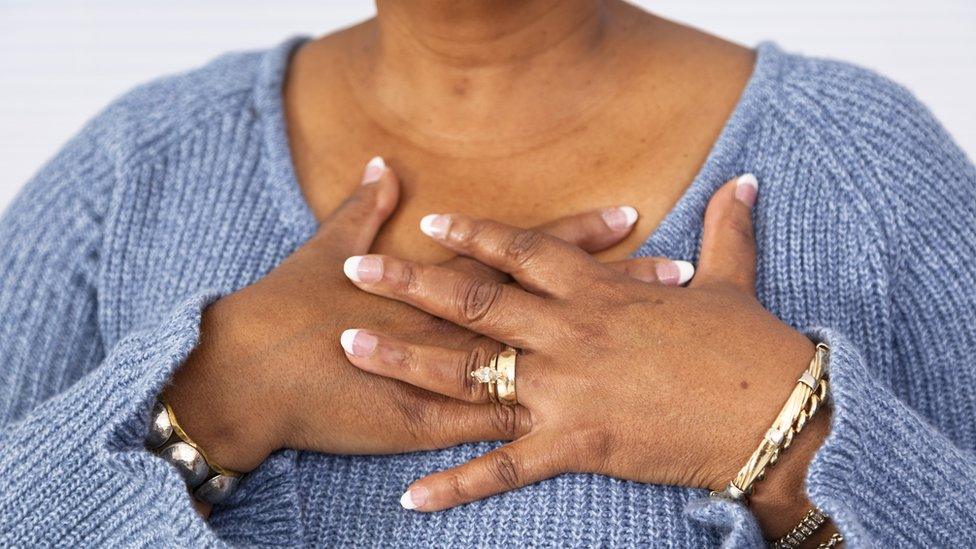Women doctors 'best for female heart patients'
- Published

Women who have a heart attack are more likely to survive if they are treated by a female doctor in hospital, a major US study suggests.
An analysis of 580,000 heart attack cases over 19 years found 13.3% died after being treated by a man compared with 12% who were cared for by a woman.
Their chances were also improved if treated by a male doctor who had a lot of female colleagues in his team.
One theory is that men may be worse at treating women, researchers said.
Independent experts said more work was needed to see if the findings applied to UK hospitals.
Researchers looked through anonymous patient data from Florida hospitals between 1991 and 2010.
After taking factors such as age, race and medical history into account, they found all patients had a better chance of surviving a heart attack if they were treated by a female doctor, but the difference in outcomes was biggest in women.
When patients were treated by male doctors, 12.6% of men died compared with 13.3% of women.
But when female physicians took charge of treatment, those percentages fell - to 11.8% of men and 12% of women.
Lead scientist Dr Seth Carnahan, from Washington University, in St Louis, said: "Our work corroborates prior research showing that female doctors tend to produce better patient outcomes than male doctors.
"The novel part of what we are doing is showing that the benefit of having a female doctor is particularly stark for a female patient."
'More research needed'
The team also found that survival rates for women rose as the percentage of female doctors working in the accident and emergency unit increased, especially if the physician in charge was male.
Researchers said doctors may be receiving training that suggested heart disease was predominantly a condition that affected men.
However, there are limitations to the study.
It cannot prove it was the presence of female doctors that caused the improved survival rates.
Maureen Talbot, senior cardiac nurse at the British Heart Foundation, said previous research from the charity had already shown a "worrying difference" in the treatment given to men and women suffering from heart attacks.
She said: "While this study supports this theory, more research is needed in UK hospitals to see if the bias exists here.
"It's important that we better understand what is causing this variation in care.
"And the BHF is already funding research into how we can improve the outcomes of women who have a heart attack."
The findings are reported in the journal Proceedings of the National Academy of Sciences, external.
- Published28 February 2018

- Published8 January 2018
